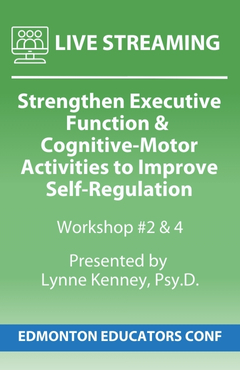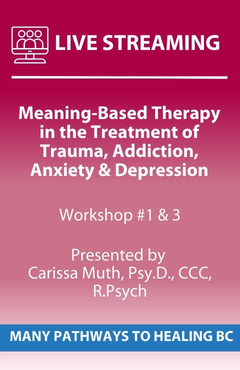Description
By purchasing this product you are registering to attend the conference/this workshop VIRTUALLY if you would like to attend in person please register at http://www.jackhirose.com/workshop/many-pathways-to-healing-bc/
This workshop is part of The Many Pathways to Healing Conference: Trauma, Addictions & Related Disorders
This workshop will be live streaming to online participants on November 27, 2024 from 8:30am – 4:00pm (Vancouver, BC)
Please adjust your start time according to your specific time zone.
Recorded footage and all course content (certificate, videos, quiz) will be available until December 28, 2024. Extensions cannot be granted under any circumstances.
Please allow 5 – 7 business days after the course airs for recorded footage to become available.
Registration will close on November 24, 2024.
WORKSHOPS 13 & 16: Acceptance and Commitment Therapy: Transcending Traditional Approaches | PRESENTED BY Jennifer Patterson, Psy.D., LCPC
In this foundational course, participants will embark on a transformative journey into Acceptance and Commitment Therapy (ACT). ACT is a third-wave cognitive-behavioral therapy that transcends traditional approaches by seamlessly weaving together the processes of acceptance, mindfulness, and behavior change principles. Through experiential learning and evidence-based techniques, participants will cultivate a profound understanding of ACT and its practical applications.
Join ACT expert and International trainer Jennifer Patterson, Psy.D., LCPC, for this workshop, where you will develop efficient, evidence-based skills, case conceptualization techniques, and powerful strategies that will improve outcomes for the following:
- Anxiety Issues
- Post-Traumatic Stress Disorder
- Mood Disorders
- Substance Abuse
- Anger Management
- Eating Disorders
- Trauma
- Personality Disorders
Outline
The ACT Model
- The nature of human suffering
- ”Healthy normality” is a myth
- Language: The double-edged sword
- Undermine unhelpful thoughts
- Aiming for psychological flexibility and why
- The ACT hexagon model
Limitations of the Research and Potential Risks
- Children and adolescents
- Acute, florid hallucinations
- Catatonic depression
- Individuals with an adverse reaction to mindfulness exercises
Acceptance
- Strengthening a willingness to have emotions
- The opposite of acceptance is experiential avoidance
- Experiential avoidance throughout the lifespan
- Why acceptance is important
Defusion
- Look at thoughts rather than from thoughts
- Coping with automatic thoughts
- The power of words
- The problem with cognitive fusion
- Address CBT-based disputation techniques with defusion
Perspective-Taking
- Understand the “Self” in ACT
- Self-as-content, self-as-perspective, self-as-context
- Observer self-exercise
- Deal with identity issues
Mindfulness
- Contacting the present moment
- Why being in the here-and-now is critical for mental health
- Relationship between mindlessness and psychopathology
- Meditation, mindfulness and mindful action
- Exercises for mindful action
Values Work
- The positive side of language
- Identifying core values
- Differentiate values and goals
- Writing values-based treatment goals
- The ethics of values clarification
Committed Action
- Define “commitment” objectively
- Integrate evidence-based therapy with ACT
- Develop ACT-based behavior therapy treatment plans
- Improve behavioral activation with ACT
Pulling It All Together
- Hexaflex model for psychological flexibility
- Ask the “ACT Question” for self-help and case conceptualization
- Inflexahex model: Diagnosis from an ACT approach
Incorporate ACT into Your Own Approach
- Social skills training
- Applied Behavior Analysis
- Inpatient treatment programs systems
- Exposure and ritual prevention
- Behavioral activation
- Parent management training
- Executive Coaching





